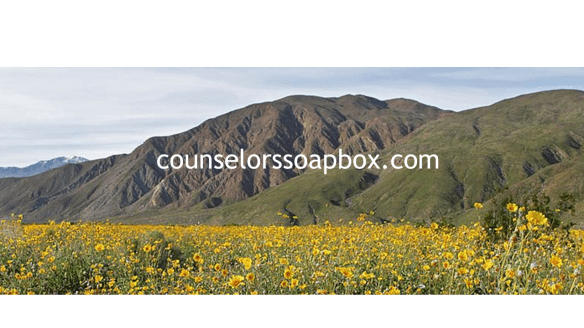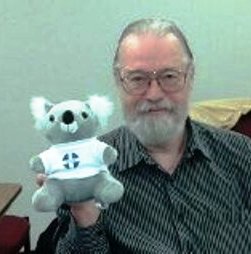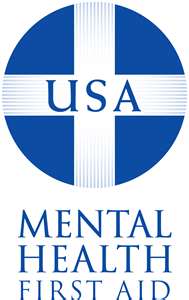Proclamation, Proclamation so many Proclamations.
By David Joel Miller.
Two very special proclamations came across my desk on the very same day this week. The president has proclaimed September as National Alcohol and Drug Addiction Recovery Month.
Here in Fresno County, California, our Board of Supervisors has declared September 7 through September 13th as Suicide Prevention Week. I suspect that lots of other jurisdictions are issuing proclamations for Suicide Prevention Week what with The World Suicide Prevention Day coming up on September 10th.
Why does Suicide Prevention Day and Week share the attention with Addiction Month?
Turns out there are a lot of connections between addiction, alcoholism, and suicide. Addiction, suicide, and mental health issues all co-exist and these are challenges that many people are reluctant to talk about. As uncomfortable as having these conversations may be they are topics we all need to think about and be prepared to discuss with those we come in contact with.
Most people are uneasy with the topic of suicide. Professionals get special training in how to talk with clients about their urges to self-harm and their thoughts of suicide. Even with that training, there are counselors who feel uncomfortable asking the simple questions like “Are you thinking of killing yourself?”
No one should ever feel uncomfortable with this question. If you have concerns about someone ask away. Just make sure you ask in a caring non-judgmental way. I see no evidence that asking someone if they are thinking about a suicidal act will put the idea in that person’s head. Many people who have started to think of suicide as a solution to their problems are just waiting for someone to care enough to ask.
Learning about mental illness, suicide prevention, and substance use disorders.
At some point in your life, you will encounter a person with a mental health challenge, an addiction or possible you will cross paths with a suicidal person. What should you do? One important thing to do is to prepare for those possibilities now. An excellent source of information on mental health issues is the Mental Health First Aid course.
Certified Mental Health First Aid instructors are available across the United States and most of the rest of the world. Consider taking the class or better yet get your group to sponsor trainings in your area. If you need more information please feel free to leave a comment or contact me.
There is also a special Mental Health First Aid training for those who work with youth which trains you on how to respond to a youth who is having mental health issues.
One other handy resource for a potentially suicidal person is the
National Suicide Prevention Lifeline – 1 (800) 273-8255 which has services available 24-7 and in both English and Spanish languages. Website: www.suicidepreventionlifeline.org
Your local 911 or emergency number is also a good resource in a crisis.
Why the connection between suicide prevention and addiction?
We find that those who drink heavily, binge drinkers, are about fifty-five times more likely to attempt suicide. Intravenous drug users are about fourteen times more likely than the general population to try to suicide. Other drug users? Any drug use disorder raises the risk of a suicide attempt by at least tenfold.
If you know someone who has a substance use disorder encourage them to get help and learn all you can about the impact that substance use disorders are having on our country.
People with an addiction can recover.
This month during National Alcohol and Drug Addiction Recovery Month it is important to emphasize how very possible it is to recover from an addiction, a mental illness, or other emotional challenges. People do change, recover, and go on to live happy productive lives no matter what the challenge is they have faced.
Today, this week, and all this month think about the problems we all face whether we know it or not, every day with addiction, substance use disorders, and the possibility that someone close to you may start thinking that suicide is an option for them.
Maybe together we can all do just a little to help those who are feeling hopeless and helpless today.
Photo by Marcus Jeffrey
Staying connected with David Joel Miller
Seven David Joel Miller Books are available now!
My newest book is now available. It was my opportunity to try on a new genre. I’ve been working on this book for several years, but now seem like the right time to publish it.
Story Bureau is a thrilling Dystopian Post-Apocalyptic adventure in the Surviving the Apocalypse series.
Baldwin struggles to survive life in a post-apocalyptic world where the government controls everything.
As society collapses and his family gets plunged into poverty, Baldwin takes a job in the capital city, working for a government agency called the Story Bureau. He discovers the Story Bureau is not a benign news outlet but a sinister government plot to manipulate society.
Bumps on the Road of Life. Whether you struggle with anxiety, depression, low motivation, or addiction, you can recover. Bumps on the Road of Life is the story of how people get off track and how to get your life out of the ditch.
Dark Family Secrets: Doris wants to get her life back, but small-town prejudice could shatter her dreams.
Casino Robbery Arthur Mitchell escapes the trauma of watching his girlfriend die. But the killers know he’s a witness and want him dead.
Planned Accidents The second Arthur Mitchell and Plutus mystery.
Letters from the Dead: The third in the Arthur Mitchell mystery series.
What would you do if you found a letter to a detective describing a crime and you knew the writer and detective were dead, and you could be next?
Sasquatch. Three things about us, you should know. One, we have seen the past. Two, we’re trapped there. Three, I don’t know if we’ll ever get back to our own time.
For these and my upcoming books; please visit my Author Page – David Joel Miller
Want the latest blog posts as they publish? Subscribe to this blog.
For videos, see: Counselorssoapbox YouTube Video Channel





